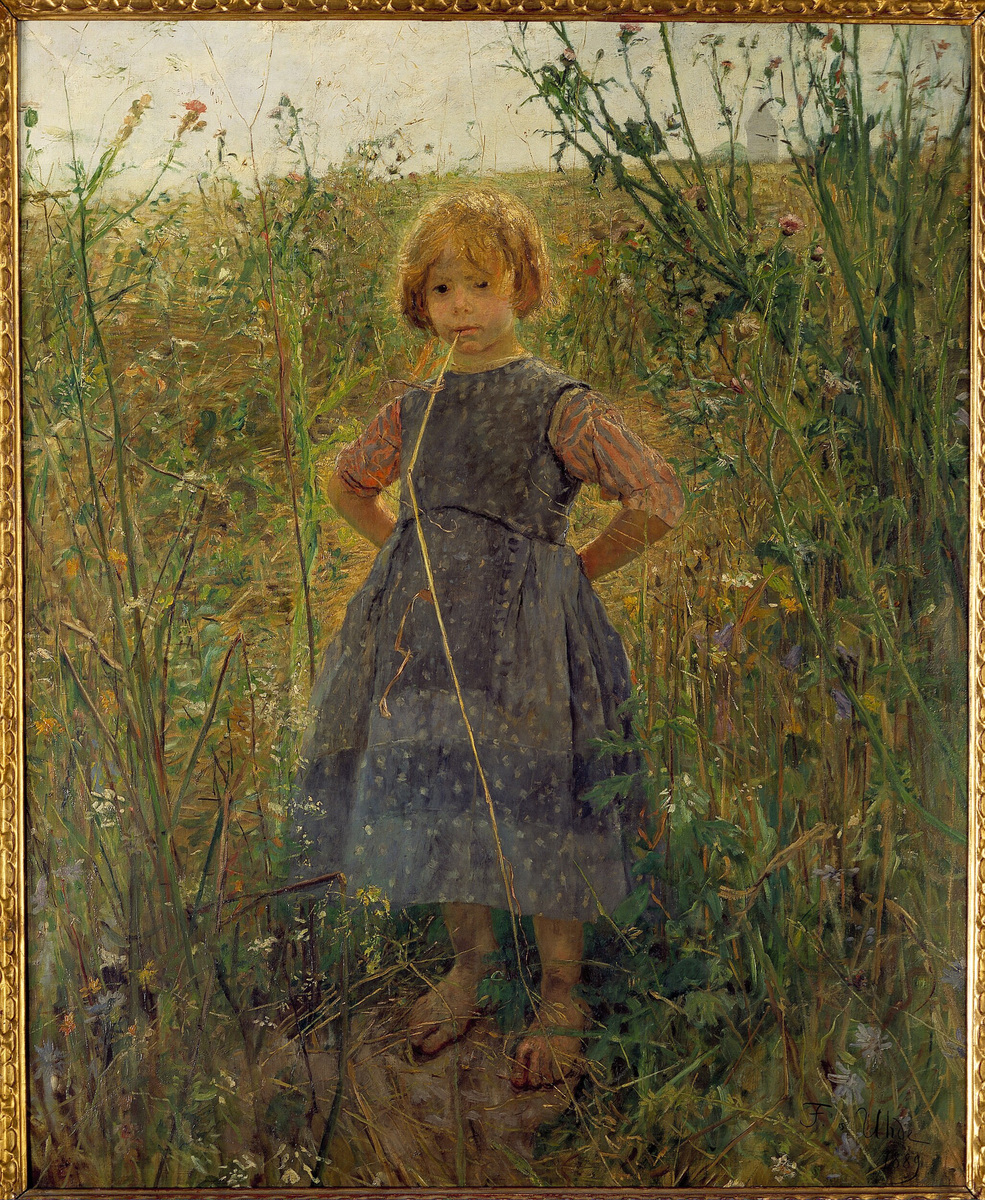Abstract
Fritz von Uhde (1848–1911) decided to paint this little girl on a
large canvas measuring 140 x 111 centimeters. Seen close up and in full
length, the girl projects a kind of self-confidence that is rare among
the “urchins” that figured so prominently in nineteenth-century art
exhibitions. Uhde’s painting follows the contemporary trend away from a
sentimental and towards a more sober realism, which was echoed in the
naturalist dramas of Gerhart Hauptmann and others. It appears that Uhde
was trying to capture the individuality of this girl, just as he had
tried to do with the children in
The
Nursery, which dates from the same year. In the present case,
however, he seems to have been more successful, achieving a greater
sense of naturalness by the avoidance of any hint of charm or amusement.
Moreover, the urbanity of The Nursery
is completely abandoned here in favor of an outdoor setting, which
literally suggests the child’s closeness to nature. Equally important is
her placement in a wild, uncultivated heathland, as opposed to a flowery
meadow. Like Max Liebermann, Uhde travelled to Holland, where he
developed a plein-air style that
accelerated the German trend from Realism to Impressionism in the late
1880s. (The French term plein air was
translated into a variety of German terms, which have been rendered in
English as light-color painting, open-air painting, and outdoor
painting.) According to some art historians, the profound inner depth of
Uhde’s work helped make the new art of the 1880s acceptable to Germans,
who had previously regarded it as an unwelcome style imported from
France. By 1889, Uhde was aiming to convey as much light, air, and
immediacy in his work as possible, and he could hardly have chosen a
better subject than this bright, free, unconstrained little girl.
